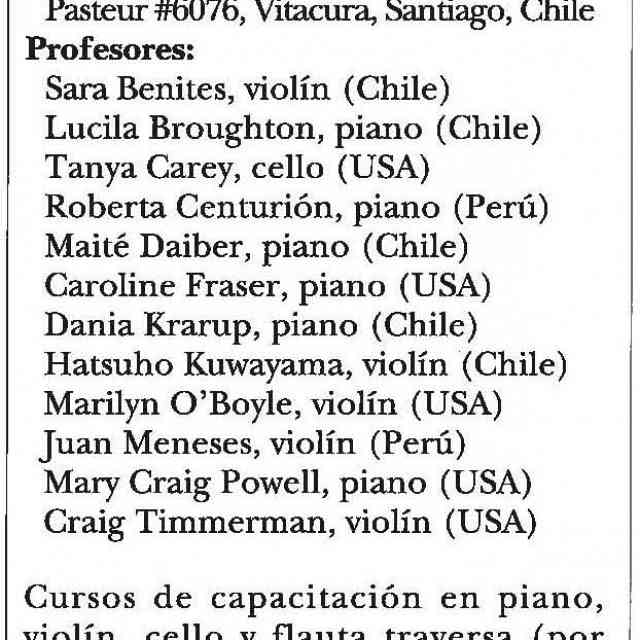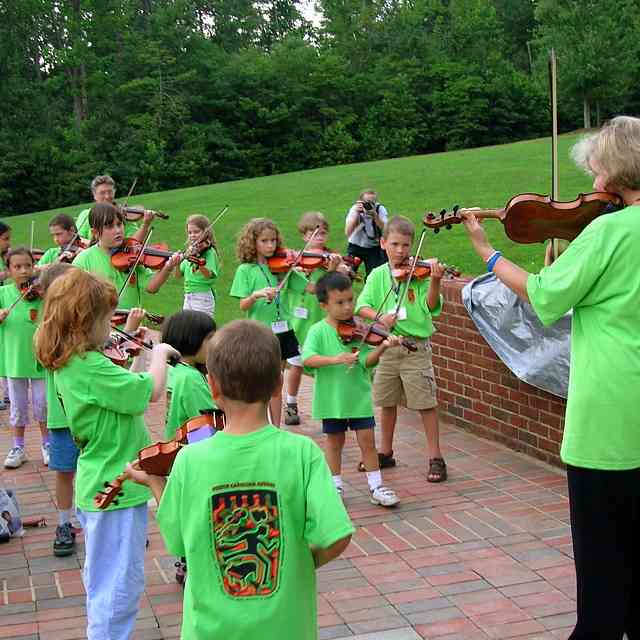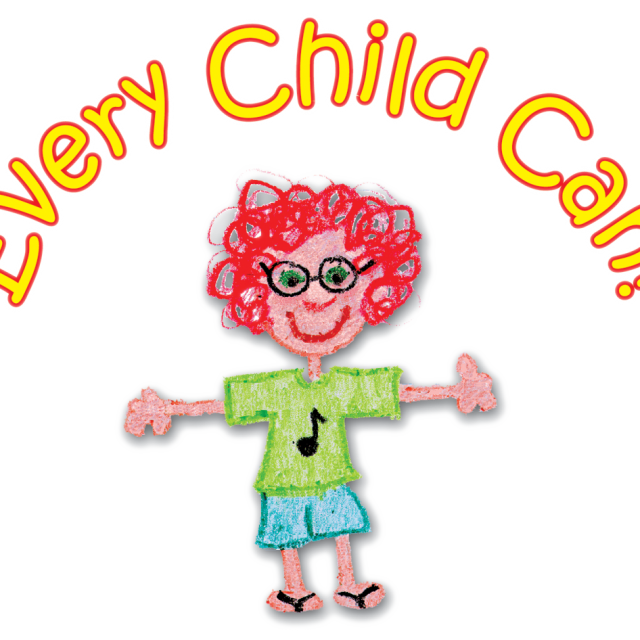I sat in the front row of the auditorium with my wife, holding my breath. We had just listened to an hour long violin recital by "Strings Inc.," a group of neighborhood children, ages four through eighteen. Included in the group was my four-year-old daughter, Arielle, the youngest one in the class. The children had gone through their repertoire and performed well. Like the other parents, we beamed proudly as our daughter walked up to the stage clutching her little violin; choked up a bit as she took her position in the front of the group (since she was so short); and felt our hearts skip when she played along with the rest of the youngsters before an audience of some one hundred friends and family members. With our video camera, we dutifully immortalized the event. And now we waited as the instructor concluded the event by announcing the winner of the "Performance Award," which honored the student who had practiced the most hours. We listened anxiously as the words rolled off the instructor’s mouth, " … and the winner is-uhhh, this may embarrass some of you (because she’s so much younger)Arielle Moss." Standing up with the rest of the audience, we applauded our daughter, the littlest one in the class, as she received the plaque. While leaving the auditorium, the other parents offered their congratulations. They knew as well as we, it wasn’t always this way.
I had high hopes for my child. I wanted her to cultivate a special talent early in life, and the violin seemed perfect. I enrolled Arielle in violin class at age three-the youngest student that Ann Brown, the instructor, had ever taught. Ann had tutored children for years using the Suzuki method. This system helped kids master musical instruments the same way they learned to speak-by hearing and practicing. Ann cautioned us that Arielle might be too young, but agreed to work with her.
The first few weeks were uneventful. Arielle learned about the various parts of the violin-the scroll, neck, shoulders, bridge, and strings. She practiced her bow grip exercise religiously. We bought the Suzuki tapes and listened all day to "Twinkle, Twinkle, Little Star" and "Pepperoni Pizza." After a month of this, I figured it was time for Arielle to start playing. I tried first at home, gently nudging her. Nothing. She refused to play. Never mind, she’s young. She’ll do better at class when she sees the other children playing.
Thursday night rolled around. I rushed home from work to pick her up. When we arrived, the other youngsters were tuning up, tightening their bows, applying resin to the strings, excitedly preparing for an hour of playing. Arielle, though, would not even open her case. Her classmates, all older, sort of looked on her as the little sister of the group. Cute and cuddly, she was fun to tickle or play with; but when it came to playing … well, she was just a kid. They practiced their songs and played neat games. Arielle never budged, except, at the end of the class, when Ann gave out stickies. The other parents smiled sympathetically, reassuring me that she would play when she was ready.
Several months passed and Arielle’s violin sat silently on the shelf. I tried other tactics. When this nine-year-old prodigy played the violin on some morning talk show, I had her watch it. She played with her Pocahontas doll, instead. I invited a friend from her class to practice the violin together. They played hide and seek. I read her stories about children who had mastered musical instruments at an early age. She remained indifferent. I thought about getting a little tougher with her. Everyone said no, be patient. But after six months, Arielle still wouldn’t play more than three notes in a row.
At the time I was ready to give up, violin virtuoso Chee Yun, from Korea, visited our small town and held a "Master Class." Chee Yun, a child prodigy in her own right, had produced successful tapes and CDs, appeared with major orchestras, and toured the world, all before the age of 20. She was passing through, and Ann Brown had arranged for her to spend some time with the kids from "Strings, Inc."
While the other children played along with Chee Yun, Arielle planted herself firmly on my lap-her violin safely locked away in its little case on the floor. I cajoled her, even begged her to try. No way. I festered in my chair, as the other parents swooned at the sight of their darlings performing alongside the young master violinist, Chee Yun.
At the end of the class, Chee Yun asked the parents if we had any questions. I was caught off guard. I wasn’t prepared to expose my anxieties in front of everyone. But I was desperate. Maybe, Chee Yun could help me.
I raised my hand. "Uhh, my daughter runs a little hot and cold with the violin," I began in modulated understatement. "I don’t want to push her too much. But I feel she can do this. Do you have any suggestions?"
Some parents nodded their heads in appreciation of the question. Maybe they were having problems with their kids, too. Chee Yun, without a moment’s hesitation, answered, almost offhandedly, "Sure, one word-bribery." Bribe my daughter? She continued. "I don’t mean bribery, exactly … " Well, what do you mean, exactly? "I mean like make it fun for her-give her a treat, turn it into a game, reward her with something when she’s done." She giggled and continued. "My aunt in Korea used to give me delicious candies when I played well. My favorite was chocolate." I noticed Arielle suddenly perk up. "I used to bargain with her. I wound up playing many hours and eating a lot of chocolate." She laughed. "But one thing. After a while, you won’t have to bribe her. She’ll do it on her own."
Flush with this fragment of wisdom from the East, I rushed home with Arielle and tried it the same day. "Arielle," I said, "I’ll give you two Hershey’s chocolate kisses if you play." I watched dumbfounded as she opened her violin case, took out her violin, and played a recognizable version of "Twinkle, Twinkle Little Star." It was a miracle!
It wasn’t long before Arielle and I had negotiated strict guidelines for practicetime. One piece of bubble gum bought ten minutes, five jelly beans purchased fifteen minutes, and a scoop of ice-cream yielded a full twenty minutes of air time. On rare occasions, I could get her to play for a solid half-hour, but that took a trip to Dairy Queen for a Mr. Misty. Life seemed so much sweeter.
About two months after Chee Yun’s fateful advice, a remarkable thing happened. I was sitting in my study with the door closed, unbeknownst to my daughter. I heard the sound of little feet scurrying quietly past my door. The Suzuki tape went on. The violin case creaked open. A moment later, amazingly, I heard Arielle playing the violin, without any inducement at all. She played for twenty minutes. I was flabbergasted. Chee Yun was right! After a while, you don’t need to bribe them. That day, and many more days since, Arielle, of her own volition, played her violin. Shortly after that, she began referring to herself as a "violinist." Six months later, Chee Yun’s advice led Arielle to the "Performance Award." After this, who knows? A successful career as a violinist? Or just the satisfaction of mastering a musical instrument. In any event, the future looks bright.
What does it take to get your child to play the violin? Hard work, dedication, and, yes … some jelly beans and gum.








